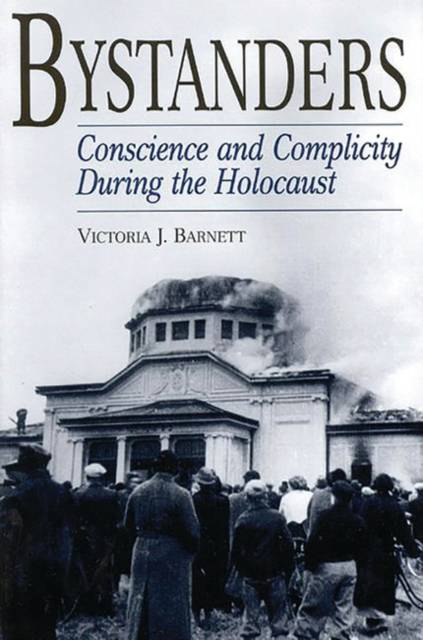
Door een staking bij bpost kan je online bestelling op dit moment iets langer onderweg zijn dan voorzien. Dringend iets nodig? Onze winkels ontvangen jou met open armen!
- Afhalen na 1 uur in een winkel met voorraad
- Gratis thuislevering in België vanaf € 30
- Ruim aanbod met 7 miljoen producten
Door een staking bij bpost kan je online bestelling op dit moment iets langer onderweg zijn dan voorzien. Dringend iets nodig? Onze winkels ontvangen jou met open armen!
- Afhalen na 1 uur in een winkel met voorraad
- Gratis thuislevering in België vanaf € 30
- Ruim aanbod met 7 miljoen producten
Zoeken
€ 76,45
+ 152 punten
Uitvoering
Omschrijving
The Holocaust did not introduce the phenomenon of the bystander, but it did illustrate the terrible consequences of indifference and passivity towards the persecution of others. Although the term was initially applied only to the good Germans--the apathetic citizens who made genocide possible through unquestioning obedience to evil leaders--recent Holocaust scholarship has shown that it applies to most of the world, including parts of the population in Nazi-occupied countries, some sectors within the international Christian and Jewish communities, and the Allied governments themselves. This work analyzes why this happened, drawing on the insights of historians, Holocaust survivors, and Christian and Jewish ethicists. The author argues that bystander behavior cannot be attributed to a single cause, such as anti-Semitism, but can only be understood within a complex framework of factors that shape human behavior individually, socially, and politically.
Specificaties
Betrokkenen
- Auteur(s):
- Uitgeverij:
Inhoud
- Aantal bladzijden:
- 208
- Taal:
- Engels
- Reeks:
- Reeksnummer:
- nr. 59
Eigenschappen
- Productcode (EAN):
- 9780275970451
- Verschijningsdatum:
- 30/07/2000
- Uitvoering:
- Paperback
- Formaat:
- Trade paperback (VS)
- Afmetingen:
- 153 mm x 235 mm
- Gewicht:
- 317 g

Alleen bij Standaard Boekhandel
+ 152 punten op je klantenkaart van Standaard Boekhandel
Beoordelingen
We publiceren alleen reviews die voldoen aan de voorwaarden voor reviews. Bekijk onze voorwaarden voor reviews.











